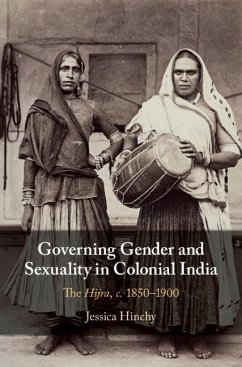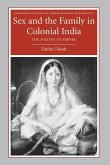In 1865, the British rulers of north India resolved to bring about the gradual 'extinction' of transgender Hijras. This book, the first in-depth history of the Hijra community, illuminates the colonial and postcolonial governance of gender and sexuality and the production of colonial knowledge. From the 1850s, colonial officials and middle class Indians increasingly expressed moral outrage at Hijras' feminine gender expression, sexuality, bodies and public performances. To the British, Hijras were an ungovernable population that posed a danger to colonial rule. In 1871, the colonial government passed a law that criminalised Hijras, with the explicit aim of causing Hijras' 'extermination'. But Hijras evaded police, kept on the move, broke the law and kept their cultural traditions alive. Based on extensive archival work in India and the UK, Jessica Hinchy argues that Hijras were criminalised not simply because of imported British norms, but due to a complex set of local factors, including elite Indian attitudes.
Dieser Download kann aus rechtlichen Gründen nur mit Rechnungsadresse in A, B, BG, CY, CZ, D, DK, EW, E, FIN, F, GR, HR, H, IRL, I, LT, L, LR, M, NL, PL, P, R, S, SLO, SK ausgeliefert werden.









